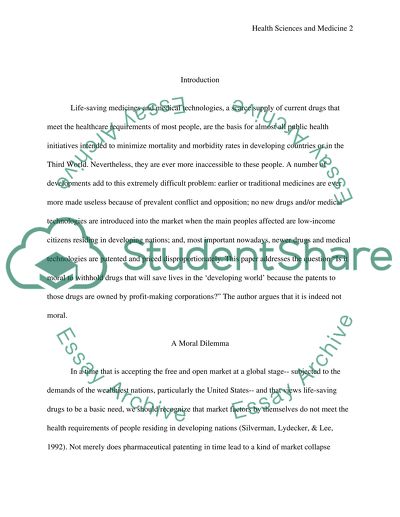Cite this document
(“Drug Patents and Morality Research Paper Example | Topics and Well Written Essays - 1250 words”, n.d.)
Drug Patents and Morality Research Paper Example | Topics and Well Written Essays - 1250 words. Retrieved from https://studentshare.org/health-sciences-medicine/1433916-drug-patents-and-morality-drugs-and-technology-is
Drug Patents and Morality Research Paper Example | Topics and Well Written Essays - 1250 words. Retrieved from https://studentshare.org/health-sciences-medicine/1433916-drug-patents-and-morality-drugs-and-technology-is
(Drug Patents and Morality Research Paper Example | Topics and Well Written Essays - 1250 Words)
Drug Patents and Morality Research Paper Example | Topics and Well Written Essays - 1250 Words. https://studentshare.org/health-sciences-medicine/1433916-drug-patents-and-morality-drugs-and-technology-is.
Drug Patents and Morality Research Paper Example | Topics and Well Written Essays - 1250 Words. https://studentshare.org/health-sciences-medicine/1433916-drug-patents-and-morality-drugs-and-technology-is.
“Drug Patents and Morality Research Paper Example | Topics and Well Written Essays - 1250 Words”, n.d. https://studentshare.org/health-sciences-medicine/1433916-drug-patents-and-morality-drugs-and-technology-is.


